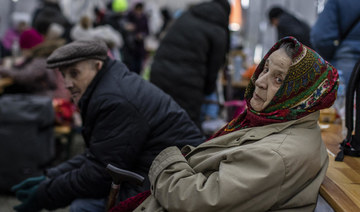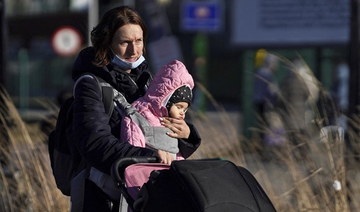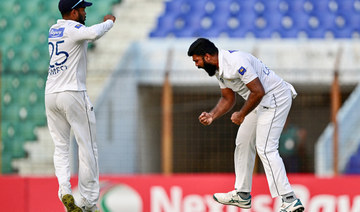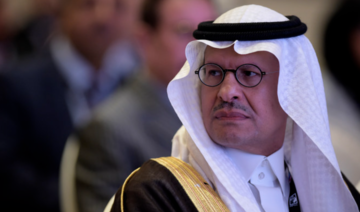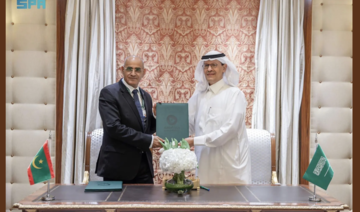WARSAW, Poland: The Pentagon on Tuesday rejected Poland’s offer to give the United States its MiG-29 fighter jets for use by Ukraine, in a rare public display of disharmony by NATO allies seeking to boost Ukrainian fighters while avoiding getting caught up in a wider war with Russia.
Pentagon spokesman John Kirby said Poland’s proposal earlier Tuesday to deliver the jets to the US Ramstein Air Base in Germany raised the concerning prospect of jets departing from a US and NATO base to fly into airspace contested with Russia in the Ukraine war.
“We will continue to consult with Poland and our other NATO allies about this issue and the difficult logistical challenges it presents, but we do not believe Poland’s proposal is a tenable one,” Kirby said in a statement.
“It is simply not clear to us that there is a substantive rationale for it,” he said.
Any decision to provide the MiGs would be a morale booster for Ukraine as Russian attacks on its cities deepen the humanitarian catastrophe. But it also would raise the risks of a wider war.
One senior US diplomat said Poland’s announcement came as a surprise.
“To my knowledge, it wasn’t pre-consulted with us that they plan to get these planes to us,” said US Undersecretary of State Victoria Nuland, who told lawmakers she learned of the proposal as she was driving to testify about the Ukraine crisis before the Senate Foreign Relations Committee.
Ukraine has been pleading for more warplanes and Washington has been looking at a proposal under which Poland would supply Ukraine with the Mig29s and in turn receive American F-16s to make up for their loss. Ukrainian pilots are trained to fly the Soviet-era fighter jets.
The Polish Foreign Ministry announced the plan in a statement, which said the jets would be delivered to Ramstein free of charge.
“At the same time, Poland requests the United States to provide us with used aircraft with corresponding operational capabilities,” it said.
The Polish government also appealed to other owners of MIG-29 jets to follow suit.
Former Soviet-bloc NATO members Bulgaria and Slovakia also still have Soviet-made fighter jets in their air forces.
Poland’s decision to publicly float its plan came the day before Vice President Kamala Harris was scheduled to depart for Warsaw for talks with Polish officials. The disconnect is likely to cast an awkward layer to the talks, which were expected to focus largely on US efforts to help Poland and other eastern European nations that have taken in some 2 million refugees since the war started less than two weeks ago.
The handover of Poland’s 28 Soviet-made MiG-29s would signal Western resolve to do more to deter Russia. Militarily, it would be unlikely to be a game-changer. The number of aircraft is relatively small. The MiG-29s also are inferior to more sophisticated Russian aircraft and could be easy prey for Russian pilots and Russian missiles.
Russia has warned that supporting Ukraine’s air force would be seen in Moscow as participating in the conflict and open up suppliers to possible retaliation.
It would also weaken Poland’s own air force at a time of heightened danger in Eastern Europe.
A transfer of the MiGs to Ukraine is fraught with complications as neither NATO nor the European Union want to be seen as directly involved in the transaction, which will significantly raise already extreme tensions with Russia. The US has no plan to directly transfer the planes to Ukraine.
In order to maintain the pretense that NATO and the EU are not direct participants in the Ukraine conflict, US and Polish officials have been considering a variety of options. One begins with the “donation” of Poland’s MiGs to the United States, as Poland announced on Tuesday.
Under one scenario that has been floated, Poland would deliver the fighter jets to the US base in Germany, where they would be repainted and flown to a non-NATO, non-European Union country. Ukrainian pilots would then come to fly them to Ukraine, under that proposal.
No country has been publicly identified as a transit point, but Kosovo, a non-aligned country that is very friendly with the United States, has been mentioned as one of several nations that might be willing to serve as a middleman.
Poland had been asking for the US to provide it with F-16 fighter jets to replace the MiGs.
F-16 production is backlogged, however, and the next recipient in line for new deliveries is Taiwan, which is facing renewed threats from China and has strong support from both parties in Congress.
In its statement, the Polish government specifically asked for “used” planes, a distinction that would allow the Biden administration to bypass congressional opposition to making Taiwan wait to receive its F-16s.
Earlier Tuesday, British Defense Secretary Ben Wallace said his country would stand by Poland if it handed over the jets, noting that it could face the “direct consequence” of its decision.
“And so we would protect Poland, we’ll help them with anything that they need,” Wallace said on Sky News.
Polish Prime Minister Mateusz Morawiecki said any decision about delivering offensive weapons must be made unanimously by NATO members.
“This is why we are able to give all of our fleet of jet fighters to Ramstein, but we are not ready to make any moves on our own because ... we are not a party to this war,” he said.
Senate Minority Leader Mitch McConnell said Tuesday that he believed the aid that Congress hopes to approve later this week for Ukraine will include loan guarantees to help NATO allies replenish their air forces after giving MiGs to Ukraine.
Pentagon says Poland’s jet offer for Ukraine ‘not tenable’
https://arab.news/jg8da
Pentagon says Poland’s jet offer for Ukraine ‘not tenable’
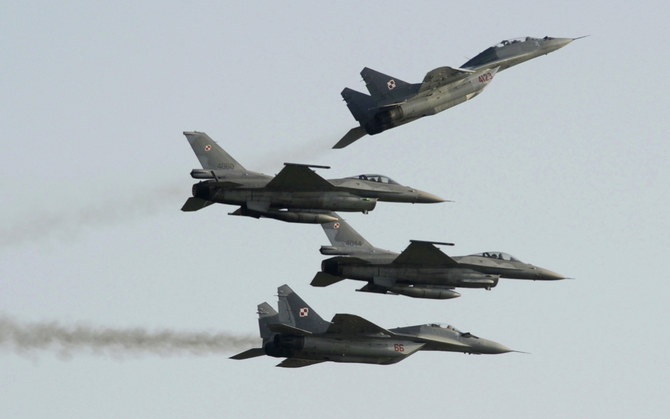
- Poland’s decision to publicly float its plan came the day before Vice President Kamala Harris was scheduled to depart for Warsaw for talks with Polish officials
Sri Lanka joins Global South-North dialogue through Riyadh WEF meeting
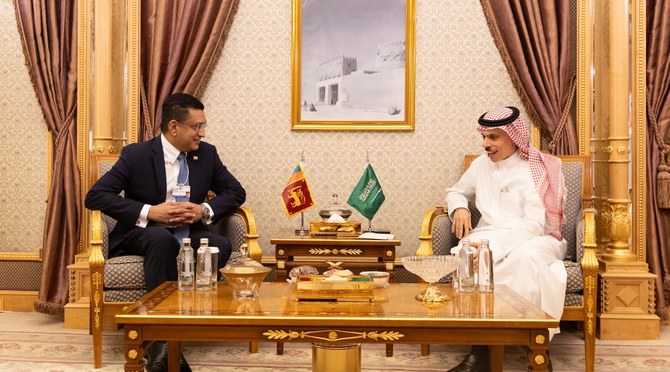
- Foreign Minister Ali Sabry was among the special meeting’s speakers
- He represented the Global South perspective at the invitation of Saudi FM
COLOMBO: Sri Lanka is trying to position itself in the dialogue between the Global South and North, its foreign minister said, following the World Economic Forum’s special meeting on global collaboration organized by Saudi Arabia.
The WEF’s Special Meeting on Global Collaboration, Growth and Energy for Development convened 1,000 global leaders arriving in Riyadh from 92 countries on April 28-29 to find actionable, collaborative and sustainable solutions to shared challenges.
The meeting saw a focus on the Global South, or countries, mostly in the Southern Hemisphere and largely in Africa, Asia and Latin America, which until recently have often been described as developing or less developed.
Sri Lanka FM Ali Sabry represented the Global South perspective at the forum’s session titled “North to South, East to West: Rebuilding Trust” alongside his Saudi counterpart, Prince Faisal bin Farhan.
“It was a great opportunity for me to showcase Sri Lanka and the challenges that countries in the Global South face, and also to position Sri Lanka as an important player, particularly in the Global South in shaping the future … for collaboration, peace and stability, rather than confrontation,” he told Arab News.
The minister was in Riyadh at the invitation of Prince Faisal, with whom he also held a meeting.
“We look forward to elevating the partnership,” Sabry said.
“We intend to sign the investment protection agreement that would probably pave the way for the inflow of investment into Sri Lanka.”
He also met other Saudi leaders during his visit to explore further cooperation possibilities.
The Kingdom has expanded ties with the South Asian island nation since last year, agreeing to broaden political consultation and launching a new employment scheme aimed at boosting Sri Lanka’s manpower exports.
Colombo has since sought Saudi assistance in developing several of its key sectors, including tourism and agriculture.
Saudi Hajj minister in Jakarta as Indonesia prepares record number of pilgrims
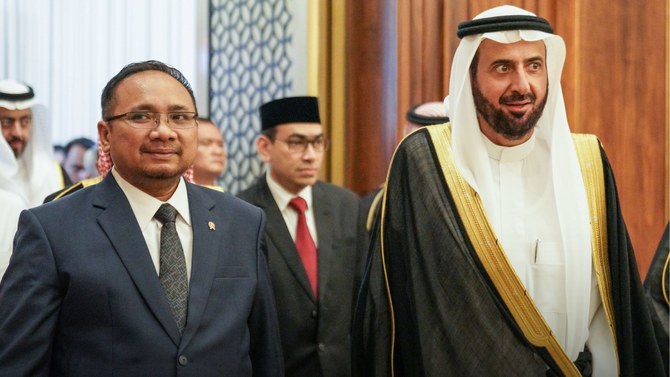
- 241,000 Indonesian pilgrims are set to perform the Hajj this year
- Saudi minister will launch tourism exhibit in Jakarta on Wednesday
JAKARTA: Saudi Arabia’s Hajj and Umrah Minister Tawfiq Al-Rabiah held meetings in Jakarta on Tuesday to coordinate pilgrimage preparations as Indonesia is going to send its largest-ever Hajj contingent this year.
The Kingdom has approved the 2024 quota of 241,000 Indonesian pilgrims, an increase of 20,000 from last year.
Al-Rabiah held discussions with Indonesia’s Religious Affairs Minister Yaqut Cholil Qoumas on ways to streamline Hajj services for the Asian nation’s pilgrims.
“I just had a long and productive meeting and discussion with my brother, the Indonesian religious affairs minister, which was focused on giving the best services and ease for Hajj and Umrah pilgrims from Indonesia,” Al-Rabiah said during a press conference.
“The Saudi government has revitalized historical and Islamic sites in Makkah and Madinah, and other sites related to pilgrimage and the journey of Prophet Muhammad … and we invite all pilgrims to come and visit these sites.”
Indonesia’s higher quota will help shorten the wait for some pilgrims by a few years, which is especially important for the elderly in the Southeast Asian nation. Many in the country wait up to 45 years for their turn, according to official estimates.
Qoumas said his interactions with Al-Rabiah had been meaningful.
“Maybe we can consider Indonesia as having received a special treatment from the Saudi government, as we are welcoming a big delegation led directly by the Saudi Hajj and Umrah minister, who are here to ensure that Indonesian Hajj pilgrims this year will get the best services from the Kingdom of Saudi Arabia,” Qoumas said.
“As a representative of the Indonesian government, we feel very grateful and thankful.”
Al-Rabiah is scheduled to inaugurate on Wednesday a Saudi Tourism Authority event showcasing the variety of travel destinations the Kingdom has to offer as it aims to attract more international visitors under Vision 2030.
Germany failing to protect Muslims from hate: Human Rights Watch
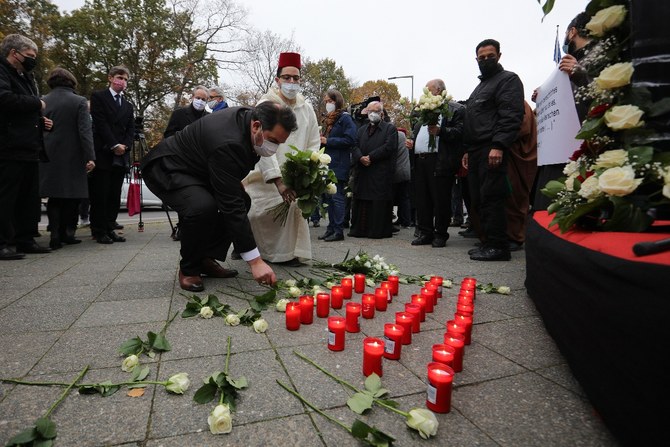
- Government ‘lacks understanding’ of racism targeting Muslim communities
- 2023 marked ‘frighteningly new high’ for hate incidents: German NGO chief
LONDON:Germany is failing to protect Muslims from growing racism amid a “lack of understanding” about the issue, Human Rights Watch has warned.
The country has yet to implement a working definition of anti-Muslim racism and frequently fails to record data on race-hate incidents, the organization said on Tuesday.
A key failing of the German government concerns its “lack of understanding that Muslims experience racism and not simply faith-based hostility,” said Almaz Teffera, a HRW researcher on racism in Europe.
“Without a clear understanding of anti-Muslim hate and discrimination in Germany, and strong data on incidents and community outreach, a response by the German authorities will be ineffective.”
Germany recorded 610 “anti-Islamic” crimes in 2022, but from the start of 2023 to September that year, the number had climbed to 686.
There are fears that the figure has further surged since the outbreak of the Gaza conflict last October.
Germany’s Interior Ministry told HRW that it could not provide data on anti-Muslim crimes from October 2023 to the year-end.
However, civil society groups in the country recorded a spike in reported incidents, leading Germany’s federal commissioner for anti-racism, Reem Alabali-Radovan, to join an EU-wide expression of concern about the rise in hate.
The Alliance Against Islamophobia and Anti-Muslim Hate, a German NGO network, documented “an average of three anti-Muslim incidents a day” last November.
The network’s chief, Rima Hanano, told HRW that “2023 marked a frighteningly new high for anti-Muslim incidents.”
Though the network collects its own internal data on the frequency of hate incidents, the German government “has yet to develop an infrastructure for countrywide monitoring and data collection,” HRW said.
The government has also classified hate incidents against Muslims as “anti-Islamic” since 2017, removing nuances surrounding the ethnic identities of victims, HRW added.
A three-year study commissioned by the government and published last year recommended that authorities “no longer dissociate anti-Muslim hate from racism,” but instead “recognize their connection.”
However, the Interior Ministry has failed to carry out the report’s recommendations, HRW said, adding: “Any focus on anti-Muslim hate and discrimination that fails to include racism or acknowledge the intersectional nature of such hostility will be unable to capture the full picture or inform effective policy responses.”
Muslim communities in Germany are a “group with a diversity of ethnicities” rather than a “monolithic religious group,” said Teffera.
“Germany should invest in protecting Muslims and all other minority communities in Germany because it is an investment in protecting all of German society.”
A gunman kills 6 worshippers inside a Shiite mosque in western Afghanistan, the Taliban say
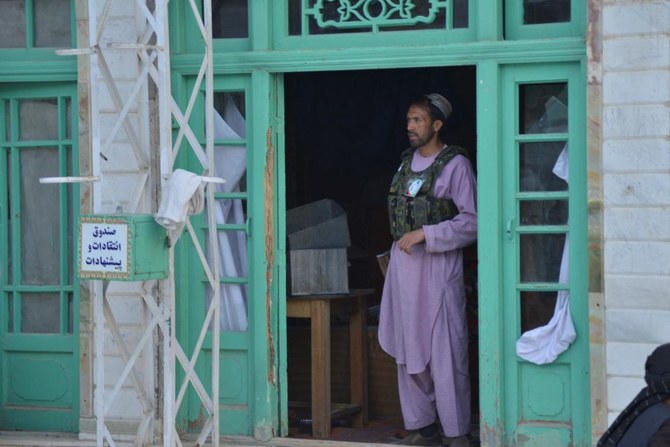
ISLAMABAD: A gunman stormed a mosque in western Afghanistan, opening fire and killing six people as they were praying, a Taliban official said Tuesday.
Local media reports and a former president of Afghanistan said the mosque was targeted because it was a place of worship for the country’s Shiite Muslim minority.
The attack happened on Monday night in the district of Guzara in Herat province, said Abdul Mateen Qani, a spokesman for the Taliban Interior Ministry. He said in a post on the social media platform X that an investigation was underway.
No one immediately claimed responsibility for the attack, which also wounded another worshipper while the attacker fled. Local media reported that the mosque's imam was among those killed.
“I strongly condemn the attack on the Imam Zaman Mosque,” former Afghan President Hamid Karzai said on X. “I consider this terrorist act against all religious and human standards.”
The United Nation Assistance Mission in Afghanistan also condemned the attack, which it said killed and wounded at least seven people, including a child. It called for urgent accountability for perpetrators and protection measures for Shitte communities.
The Islamic State group’s affiliate in Afghanistan is a major Taliban rival and frequently targets schools, hospitals, mosques and Shiite areas throughout the country.
The Taliban seized power in Afghanistan in August 2021, during the last weeks of the chaotic departure of U.S. and NATO troops from the country after 20 years of war.
Despite initial promises of a more moderate stance, the Taliban gradually reimposed a harsh interpretation of Islamic law, or Shariah, as they did during their previous rule of Afghanistan from 1996 to 2001.
Russia says United States is being hypocritical over ICC and Israel
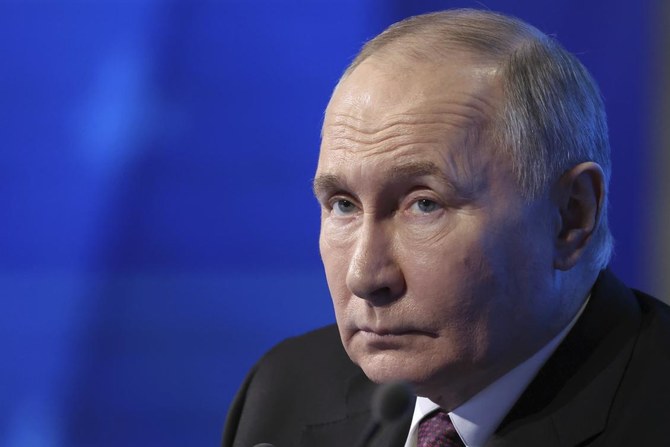
- US President Joe Biden said last year that the ICC decision to issue an arrest warrant for Putin was justified
MOSCOW: Russia said on Tuesday that the United States was being hypocritical by opposing the International Criminal Court’s (ICC) investigation of Israel but supporting the court’s warrant for the arrest of President Vladimir Putin.
The ICC — which can charge individuals with war crimes, crimes against humanity and genocide — is investigating Hamas’ Oct. 7 cross-border attack and Israel’s devastating military assault on Hamas-ruled Gaza, now in its seventh month.
White House spokesperson Karine Jean-Pierre said on Monday the United States did not support the ICC’s investigation of Israel and did not believe that the court had jurisdiction.
US President Joe Biden said last year that the ICC decision to issue an arrest warrant for Putin was justified. The United States has shared details of alleged Russian war crimes in Ukraine with the ICC.
Russia says the warrant against Putin is a meaningless attempt by the West to soil Russia’s reputation and denies war crimes in Ukraine. Ukraine says Russia committed war crimes. Russia says the West has ignored Ukraine’s crimes, a charge denied by Kyiv.
“Washington fully supported, if not stimulated, the issuance of ICC warrants against the Russian leadership,” Russian Foreign Ministry spokesperson Maria Zakharova said in a post on Telegram.
But “the American political system does not recognize the legitimacy of this structure in relation to itself and its satellites,” Zakharova said, adding that such a position was intellectually “absurd.”
The Kremlin has called the issuing of the warrant against Putin outrageous and legally void, as Russia is not a signatory to the treaty that created the ICC.
Israel is not a member of the ICC, while the Palestinian territories were admitted as a member state in 2015.
Prime Minister Benjamin Netanyahu said on Friday that any ICC decisions would not affect Israel’s actions but would set a dangerous precedent.
Israeli officials are worried that the court could issue arrest warrants against Netanyahu and other top officials for alleged violations of international humanitarian law in Gaza, Israeli media have reported.
They said the ICC is also considering arrest warrants for leaders from Hamas.



